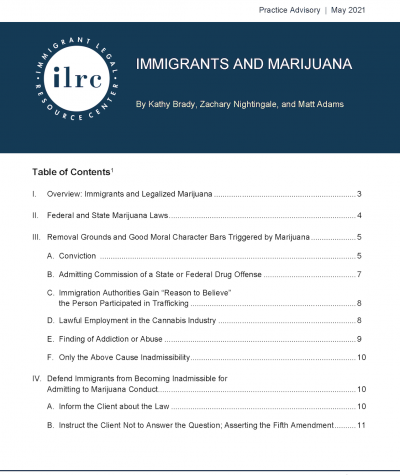
05/21/2021
Thirty-six states in the U.S. have legalized some medical use of marijuana, and 18 states and the District of Columbia also have legalized recreational use. Based on this, immigrants may reasonably think that using marijuana in accord with state law will not hurt their immigration status. Unfortunately, that's wrong. Marijuana remains a federal controlled substance. In April 2019, USCIS amended its Practice Manual to emphasize that even "legal" conduct involving marijuana is a basis for severe immigration penalties. It provides that noncitizens who admit that they have used marijuana, or been employed in the legitimate cannabis industry, can be denied naturalization for lack of good moral character. The same conduct can be a basis for a finding of inadmissibility, either as an "admission" of a controlled substance offense or because it gives the government "reason to believe" the person is a drug trafficker. See INA 212(a)(2). Admitting to having possessed marijuana can disqualify an applicant for cancellation of removal, cause any non-citizen, including a permanent resident, to be excluded at the border; and destroy eligibility for family immigration.
This page provides several tools: an updated and a comprehensive Practice Advisory on the legal issues; a Practice Alert on the Policy Manualamendment; community flyers that you can download and use to help warn clients and community; and a sample written warning about working in the industry from the California Employment Development Department.

